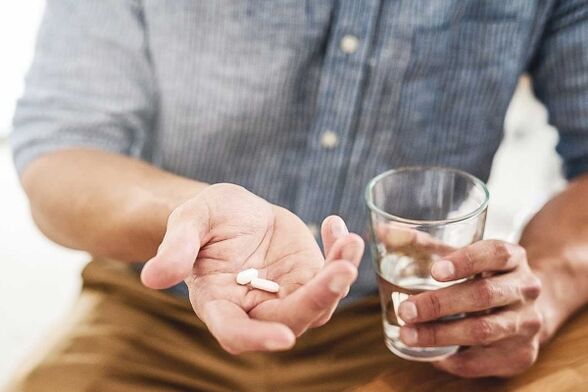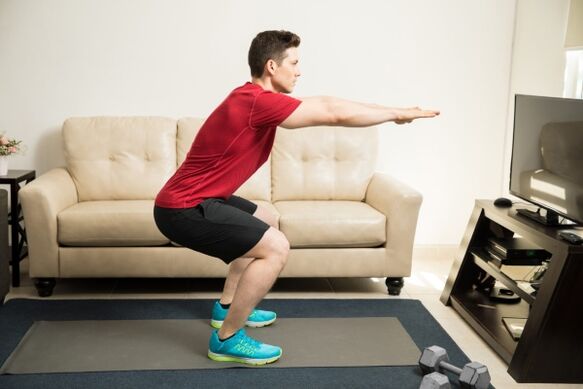Calculating prostatitis is a rare form of the disease that requires specific treatment. Therefore, it is important to know how it arises and what are the signs that accompany it. With this article, you will learn about all the characteristics of the disease. As well as diagnostic and treatment methods.
In calculous prostatitis, an inflammatory process is characteristic, in which conglomerates with a dense structure are formed. In other words, they are stones located in the prostate. They consist of elements that enter a man's body. They arise in the secretion of the prostate in the context of the chronic course of prostatitis, pathological disorders.
Occurrence causes
Calculated prostatitis can be caused by the following:
Rock formations are yellowish and spherical. The minimum size of prostatolites is 0. 25 cm, the maximum is 0. 4. They are formed individually or in multiples, they are mainly of the following types: phosphate stones, oxalate or urate stones.
Symptoms
The following signs indicate the presence of prostatoliths in the prostate:
- dull, painful pain in the perineum, groin, coccyx, scrotum;
- increased pain syndrome after physical actions, bowel movements, sexual intercourse, prolonged sitting in one position;
- acute pain when urinating;
- intermittent jet;
- frequent need for retention of urine;
- blood particles in urine and semen;
- premature ejaculation;
- power weakening;
- increase in body temperature;
- insomnia;
- decreased appetite;
- psycho-emotional instability.
Stages of bacterial prostatitis
- Primary or catarrhal.In the primary form, stones form in the acini of the prostate or in the ducts. Symptoms of a catarrhal type are poorly expressed; the symptoms resemble catarrhal pathologies. If you consult a urologist in a timely manner and start the proper treatment, you can get rid of the disease within a week.
- Secondary or follicular.In the secondary form, prostatoliths enter the organ from the kidneys, bladder and other body elements in the context of urolithiasis. A follicular appearance may develop after an untreated catarrhal type. The manifestations are acute, with an increase in body temperature and suppuration, the duration of therapy is long.
- Tertiary or parenchymal.In the tertiary form, the prostate parenchyma is affected, which is why it is called parenchymal (diffuse). It is the last stage of the acute course, in which symptoms are very acute. A purulent exudate forms in the inflamed area. The treatment process is long, tolerance is difficult.
Possible complications of calculous prostatitis
What complicates untreated calculous prostatitis:
- prostate abscesses in the context of the accumulation of purulent fluid in the tissues;
- intoxication of the body with purulent formations and later development of sepsis, which is fatal;
- prostate atrophy and, as a result, impotence;
- vesiculitis in the acute or chronic form, which is characterized by vasodilation in the spermatic cord, which leads to impotence and infertility;
- cystitis and urinary incontinence.
To prevent such consequences, it is necessary, as soon as the first signs appear, to go to the clinic and undergo a complete examination.
How to relieve an attack at home?
It is perfectly understandable to any sane person that during an attack it is necessary to call an ambulance brigade. But before it arrives, you can take the usual pain relievers. If your medicine cabinet contains propolis-based rectal suppositories, perform the appropriate procedure. Alleviate pain and laxative pills.
Which doctor are you treating?
The urologist (or andrologist) treats the treatment of prostatitis in any way. Other highly specialized physicians—a nephrologist, an infectious disease specialist, and others, depending on the cause of the stones' formation—are also included in the process of diagnosing and selecting treatment tactics.
Diagnosis
On the first visit to the urological office, the doctor performs a palpation and visual examination, after which an anamnesis is collected. Lifestyle, the presence of certain pathologies and the nature of the manifest signs are necessarily taken into account. In addition, the following diagnoses are performed:
- collection of blood and urine for general analysis to identify the quantitative number of structural units (composition of biological fluids);
- semen collection (sperm with calculous prostatitis is characterized by an increased number of epithelial tissues and amyloid bodies);
- the spermogram allows to study the degree of motility and sperm count;
- Prostate X-ray;
- prostate ultrasound examination;
- magnetic or computerized resonance imaging.
Blood collection for PSA is mandatory, which allows the identification of a specific prostate antigen (a kind of prostate tumor marker).
Treatment of calculous prostatitis
The duration of therapy and the selection of therapeutic measures depend on the degree of negligence of the disease, as well as on the form, cause of development and presence of complications.
drug treatment

Surgical intervention
Physiotherapy
- exposure to ultrasound reduces the level of inflammation, removes pain;
- laser therapy speeds up prostate metabolic processes, relieves discomfort;
- magnetic therapy restores blood circulation, counteracts swelling.
Massage normalizes the patency of the ducts, speeds up the blood supply, which is considered effective for prostatitis, but calculatingly is strictly prohibited. The reason is that prostatolites can move around the body.
If you don't have the opportunity to have physiotherapy procedures, you can do them at home with special equipment. But remember that physical therapy is only effective in remission - when prostatitis is in the exacerbation phase, the use of devices is prohibited.
diet therapy
The patient diagnosed with calculous prostatitis is required to follow a special diet, which is developed by a nutritionist at the individual level, according to the severity of the pathology.
The basis of dietary nutrition is the rejection of alcoholic and carbonated beverages, fried, smoked, salty and spicy foods. It is not desirable to use broths based on fatty meats and fish, mushrooms. Horseradish, radish, radish, garlic, cabbage, beans and onions should be excluded from vegetables. And the rest of the products leading to gas formation.
Physiotherapy
It is always used for prostatitis, but calculatingly, the exercises should be light to avoid rock movement. Gymnastics should stretch the muscles of the perineum. To do this, you can do the following exercises at a slow pace:

folk remedies
Prediction
In the treatment of calculous prostatitis, conservative therapy is initially used, the result of which is usually favorable. In neglected forms and in the absence of positive dynamics of drug therapy, surgery is used. In this case, the prognosis is also favorable. However, special attention must be paid to the rehabilitation period in order to prevent infections and other complications.
Prevention measures
To prevent the development of calculous prostatitis and prevent relapse, follow simple rules:
- eliminate bad habits;
- seek timely medical help for any pathological disorders;
- strictly follow the urologist's instructions;
- don't cool too much;
- use condoms to prevent infections;
- have an active sex life with a partner.
























